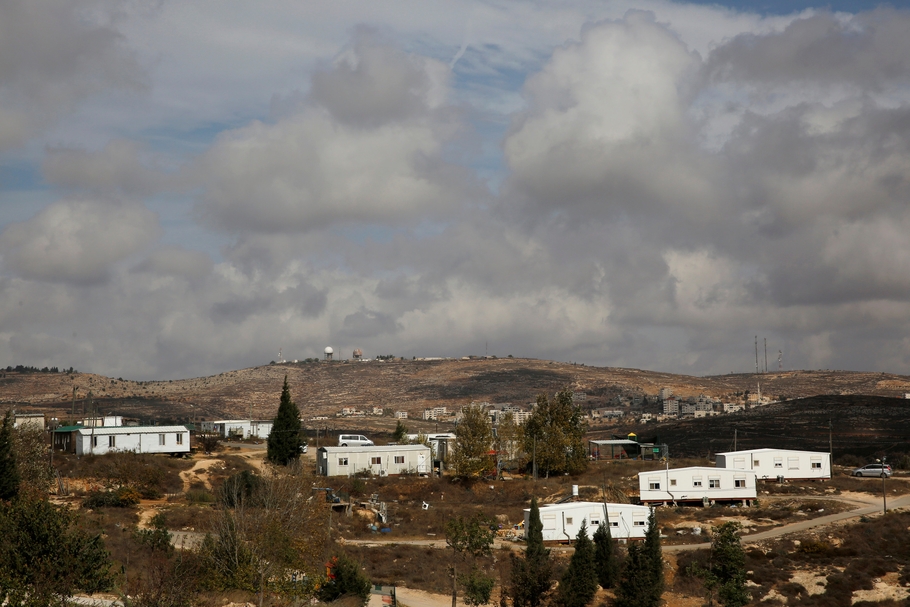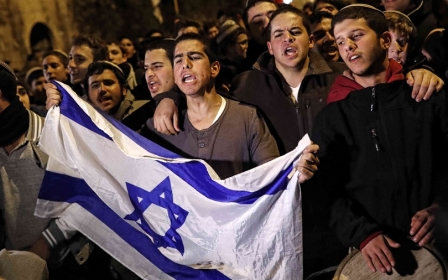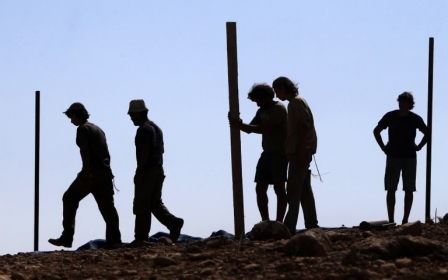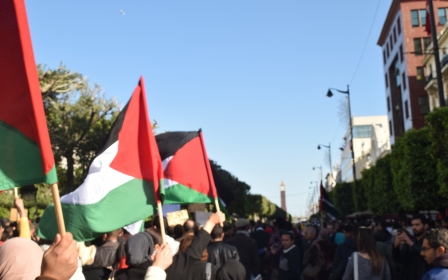UN Security Council to vote on end to Israeli settlements

The United Nations Security Council will vote on a draft resolution that would demand Israel "immediately and completely cease all settlement activities in the occupied Palestinian territory, including East Jerusalem."
Egypt circulated the draft on Wednesday evening and the 15-member council is due to vote on Thursday, diplomats said. They said it was unclear how the United States, which has protected Israel from UN action, would vote.
The White House declined to comment. Some council diplomats hope President Barack Obama, who has had a rocky relationship with Israeli Prime Minister Benjamin Netanyahu, may allow Security Council action by abstaining on the vote.
In a post on Twitter, Netanyahu said the United States "should veto the anti-Israel resolution at the UN Security Council on Thursday." The tweet gave no indication whether Israel had been informed of how Washington planned to vote.
Uncertainty of US veto
A resolution needs nine votes in favour and no vetoes by the United States, France, Russia, Britain or China to be adopted.
UN diplomats see the resolution as a final chance for council action on the Middle East before Republican President-elect Donald Trump succeeds Democrat Obama on 20 January. Trump has signalled he would support Israel in a number of critical areas and not pressure it to engage in talks with the Palestinians.
His nominated ambassador to Israel, David Friedman, has said that settlements are not illegal.
Settlements in the West Bank are in violation of international law. World powers, including Washington, view them as major stumbling blocks to peace efforts because they are built on land seized in the 1967 war, which Palestinians see as part of their future state.
Despite approving the biggest military aid package in history to Israel, the Obama administration has been highly critical of Israeli settlement-building.
Earlier in December, US Secretary of State John Kerry accused right-wing Israelis of deliberately thwarting efforts to broker a peace deal with the Palestinians.
"I'm not here to tell you that the settlements are the reason for the conflict, no, they're not," Kerry said. "But I also cannot accept the notion that they don't affect the peace process, that they aren't a barrier to the capacity to have peace."
US officials said this month, however, that Obama was not expected to make major moves on Israeli-Palestinian peace before leaving office.
‘Grand disappointment’
Palestinian American Activist Hassan Nawash said he expects the Obama administration to block the resolution.
“He’ll veto it,” he told Middle East Eye. “For strategic and political purposes, Obama will not change US policy of supporting Israel at the UN. It will be important for Democrats, so Republicans don’t start banging the drums telling Americans that Democrats are anti-Israel.”
Nawash, who lives in the Detroit, Michigan area, added that Obama would not want to start side battles for his political party, which is bracing for four years under a Trump presidency.
“He will continue with the tradition of the pro-Israeli veto in the Security Council,” Nawash said.
Obama will continue to condemn settlements but justify the veto by saying the priority should be for the peace process, Nawash predicted.
Asked about Obama’s legacy on the Israeli-Palestinian conflict, Nawash said, “Grand disappointment”.
He criticised the outgoing US president for failing to enforce his own policies, which call for freezing settlement expansion.
In 2011, the US vetoed a draft resolution condemning Israeli settlements after the Palestinians refused a compromise offer from Washington. The US says continued Israeli settlement activity lacks legitimacy.
The draft text to be voted on says the establishment of settlements by Israel has "no legal validity and constitutes a flagrant violation under international law".
It expresses grave concern that continuing settlement activities "are dangerously imperilling the viability of a two-state solution".
The Palestinians want an independent state in the West Bank, Gaza and East Jerusalem, areas Israel captured in a 1967 war. Most countries and the UN view Israeli West Bank settlements as illegal and an obstacle to peace.
Israel disputes that settlements are illegal and says their final status should be determined in any future talks on Palestinian statehood.
Israeli UN Ambassador Danny Danon called the draft "the peak of hypocrisy".
"It is absurd that at a time when thousands are being massacred in Syria, the Security Council is devoting time and energy to convene and discuss condemning the only true democracy in the Middle East," he said.
The draft said the council would "reiterate its demand that Israel immediately and completely cease all settlement activities in the occupied Palestinian territory, including East Jerusalem, and that it fully respect all of its legal obligations in this regard".
The "Quartet" sponsoring the stalled Middle East peace process - the US, Russia, the European Union and the UN - said in July that Israel should stop building settlements.
The Quartet report said at least 570,000 Israelis were living in the settlements.
Middle East Eye propose une couverture et une analyse indépendantes et incomparables du Moyen-Orient, de l’Afrique du Nord et d’autres régions du monde. Pour en savoir plus sur la reprise de ce contenu et les frais qui s’appliquent, veuillez remplir ce formulaire [en anglais]. Pour en savoir plus sur MEE, cliquez ici [en anglais].




